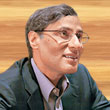One man's terrorist is another man's freedom fighter
2016/03/08 10:11:31 網誌分類: 生活
How people describe such events depends on their political beliefs. For example, there is an English saying: One man’s terrorist is another man’s freedom fighter. This saying means that some people consider terrorists as freedom fighters but others consider terrorists as terrorists. Israel considers Palestinians fighting for their own state as terrorists but Palestinians who fight against Israeli occupation consider themselves as freedom fighters. As I have pointed out before, the Oxford Dictionary defines a riot as a violent disturbance of the peace by a crowd. It describes a disturbance as a breakdown of peaceful and law-abiding behaviour. The word “incident” has several meanings but in this case the dictionary defines it as a violent event such as an attack on someone.
It is clear from the dictionary’s definitions that a riot is the most serious, a disturbance is less violent, and an incident involves fewer people. An illegal assembly is an unlawful gathering of people who want to commit a crime or disturb the peace. Civil disobedience is a peaceful form of political protest. A revolution is a movement to overthrow the government by force. A massacre is a slaughter (cruel killing) of many people. The cruel killing of thousands of Chinese by the Japanese in 1937 in Nanjing is known as the Nanjing Massacre. It is up to you to decide how you want to describe different things.
* * *
你會怎樣形容農曆新年在旺角發生的事?它是一場riot、disturbance 還是incident?特首梁振英,政務司司長林鄭月娥以及財政司司長曾俊華,都稱之為riot;但泛民派如余若薇,卻稱之為incident。你又會如何形容二○一四年,上千示威者佔領金鐘、銅鑼灣與旺角的街道?政府將之視作非法集會(illegal assembly),示威者叫作公民抗命(civil disobedience),有些年輕的示威者則稱之為革命(revolution)。你會怎樣形容一九八九年六月四日在北京所發生的事?中央政府稱之為事件(incident),香港和世界各地支持民主的人就稱之為大屠殺(massacre)。
人們怎樣形容那些事情,取決於他們的政治信念。正如一句英語俗語所言:One man’s terrorist is another man’s freedom fighter,意思就是有些人將恐怖份子視為自由戰士,而其他人眼中的恐怖份子仍然是恐怖份子。以色列人認為那些為自己國家而戰的巴勒斯坦人是恐怖份子,但那些對抗以色列人進佔的巴勒斯坦人,則自認為自由戰士。正如我以前所說,牛津字典將riot 定義為一群人暴力地擾亂(disturbance)治安,而disturbance 則為破壞和平及法紀的行為。Incident 有幾個意思,在這種情況下字典將之定義為暴力事件或衝突,例如攻擊某人。
從字典的定義可清楚見到,riot 是最嚴重的,disturbance 的暴力程度較低,而incident 則牽涉較少人。Illegal assembly 就是非法集會,一群人聚集犯罪或擾亂治安。Civil disobedience 則是和平的政治示威。Revolution 就是革命,以武力推翻政權。Massacre 是屠殺(slaughter)大量的人。一九三七年在南京,成千上萬的中國人被日本人殘殺,世稱南京大屠殺(Massacre)。你如何形容不同的事,就看你怎樣決定。
中譯:七刻
Michael Chugani 褚簡寧
回應 (0)
我要發表

